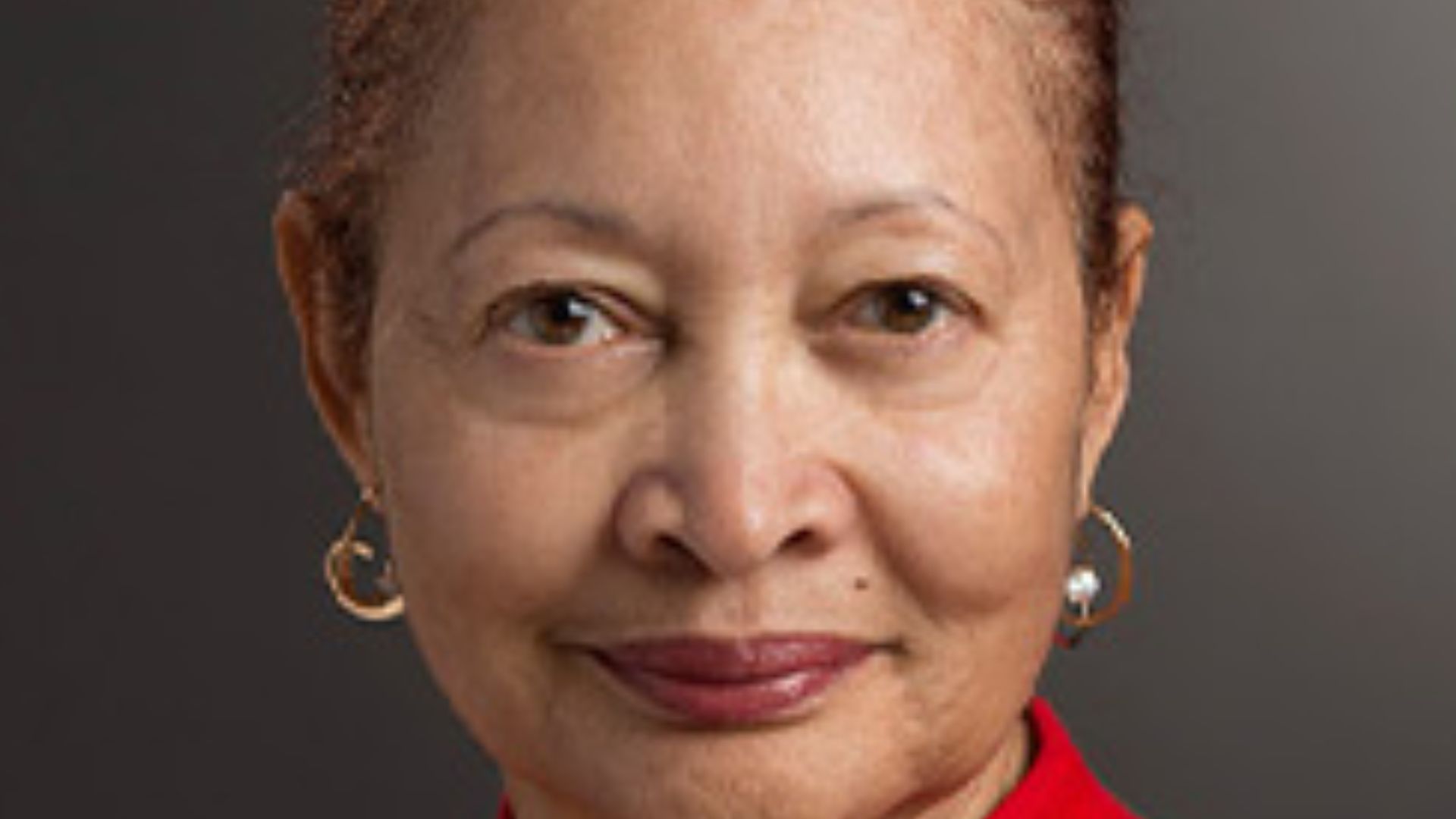Local News
Kijana Crawford announces retirement after 52 years of groundbreaking service with the College of Liberal Arts at RIT

Rochester, New York – After more than five decades of unwavering service, leadership, and activism, Professor Kijana Crawford is preparing to retire from Rochester Institute of Technology (RIT), closing a monumental chapter that began in 1973. As a trailblazing educator and fierce advocate for equity and inclusion, Crawford’s 52-year journey with the College of Liberal Arts leaves behind an indelible mark—not just on the academic community, but on the lives of countless students, colleagues, and families.
Crawford’s retirement, officially set for June 30, is not an end but a new beginning. While she may be stepping away from the classroom, her story and influence remain etched in the heart of the university that has been her professional home for over half a century.
“RIT is a great place to raise a family, and it’s a great place to be a single parent. I raised my two daughters here,” she said. “Faculty would let them sit in on their lectures. Students used to help babysit them, and they even helped my daughters learn Mandarin Chinese and Russian and tutored them in math.”
It’s a powerful reminder of how, for Crawford, the university was never just a workplace—it was a community, one that supported her as a parent, as a scholar, and as an activist. And in return, she gave that community everything she had.
From the moment she joined the Department of Sociology and Anthropology, Crawford stood out—not just for her intellect, but for her courage to challenge norms and push for change. One of her earliest and most defining contributions came when she served on the search committee for a new dean of the College of Liberal Arts. In a room dominated by white men, she found herself as both the only woman and the only person of color.
“There was an internal candidate that the old white boys network wanted to emerge in the front, but there was also an internal female candidate who happened to be Mary C. Sullivan. They did not want her to emerge as part of the finalists… I had to do my homework to push back. I really surprised that group by not caving to the pressure… As a result of advocating and standing my ground, Mary Sullivan became the first female dean of the college.”
That tenacity would become a trademark of Crawford’s academic career. She was never content to simply exist within an institution—she worked tirelessly to make it better.
Over the decades, Crawford became a powerful voice in efforts to make RIT more inclusive. She helped establish the AALANA Faculty Advisory Council, aimed at increasing recruitment and retention of African American, Latino American, and Native American faculty. She mentored countless new faculty members and students, offering guidance, support, and an example of resilience.
Her commitment was formally recognized during the 2015–2016 academic year when she received the Isaac L. Jordan Sr. Faculty Pluralism Award, an honor given to faculty who significantly advance diversity and inclusion at RIT.
Crawford’s passion wasn’t limited to faculty meetings and campus committees. Inside the classroom, she pushed boundaries and created space for voices that often went unheard. One of her most groundbreaking contributions to the curriculum was the introduction of a course titled Homophiles and Their Society—a course that addressed LGBTQ+ relationships with empathy, context, and depth long before such topics were common in higher education.
“I knew then that there was more to same gender relationships than sexual elements… I worked with the Gay Alliance of Genesee Valley… They really taught and nurtured me and helped me organize the class until members of that community could take over and do it themselves.”
Crawford didn’t attempt to speak over or for the LGBTQ+ community. She opened the door and stepped aside, allowing people to share their own experiences. Her role as a facilitator, rather than a narrator, underscored her deep respect for individual stories.
“It wasn’t my experience, and it was not my right or my place to tell students what their experience was. In that process, I learned a lot myself.”
It was just one of the many ways she used her platform to expand understanding and challenge assumptions.
When Crawford began her RIT journey, the campus—and the world—looked very different. Over the years, she bore witness to sweeping changes, not just in the architecture and student population, but in attitudes, awareness, and activism.
“It is so fascinating now to walk around campus and be among a diverse group of faculty, staff, and students… I’m finding that there are more white male students talking about the privilege that they have as white students, and I don’t have to get into a debate about it. It’s a comfortable environment.”
Crawford never underestimated the power of cultural shifts and collective consciousness. And she always recognized when those shifts were real and meaningful. She saw the change not just in who was at the table—but in who spoke up, who listened, and who stood in solidarity.
“It’s not just me solely speaking up and resisting… It’s a collective group across the institute. It’s exciting to see it happen. It’s not perfect, but it’s a whole lot better than it was in 1973.”
While many professors might slow down in their final years, Crawford went full steam ahead, fulfilling a long-held dream with one last major academic endeavor—a study abroad trip to Ghana. Partnering with Assistant Professor Makini Beck and Associate Vice President for Academic Access and Success Phillippa Thiuri, Crawford led a group of students to Accra, immersing them in a transformative learning experience.
She called it the final item on her “RIT bucket list,” a fitting capstone to a life of global thinking and local action.
If you’ve ever attended an RIT commencement with Crawford in the faculty lineup, you’ve likely seen her emotional side. The ceremony, for her, was always more than pomp and circumstance—it was a culmination of years of effort, sacrifice, and transformation.
“It’s always commencement, to be honest. It’s always an emotional time for me and I simply cannot hold it together.”
Every name called and every decorated cap that crossed the stage was, in many ways, a piece of her own journey. In the joy and celebration of others, she saw the reflection of her own purpose.
Retirement, for Crawford, doesn’t mean slowing down. It simply means shifting focus. She plans to move to Madison, Alabama, a short drive from Huntsville, where she’s already preparing to deepen her civic engagement and activism.
“I’m already a registered voter there and I plan to become more politically involved and engaged… I’ll be working very actively with the Greater Huntsville chapter of Links, Incorporated, the Greater Huntsville chapter of my sorority Delta Sigma Theta, and the Greater Huntsville Chapter of Jack and Jill Associates.”
Crawford’s return to her home state of Alabama is steeped in significance. Born in Tuskegee and raised in Troy, she was no stranger to racial inequality. At age 14, she became one of the first Black students to integrate a previously all-white high school in Troy—a formative experience that planted the seeds of her lifelong resistance to injustice.
“The experience that I had there, how I was treated, really set the background and the seed for my activism and resistance to white supremacy. I’m eager to continue that work back in Alabama.”
As RIT says goodbye to one of its most influential faculty members, it’s impossible to sum up Kijana Crawford’s legacy in a few bullet points. Her story is one of strength in the face of adversity, of giving when it wasn’t easy, and of believing—in students, in colleagues, and in the power of community.
For over five decades, she was the spark, the shield, and the steady hand in the classroom, the committee room, and beyond. She fought for fairness, lifted up others, and did it all while raising two daughters on her own in the very community she helped shape.
Now, as she embarks on a new journey, one thing is certain: RIT may be losing a professor, but the world is gaining a full-time freedom fighter—again.
And if her past is any indication, her next chapter will be just as impactful, just as courageous, and just as unforgettable.

-

 Local News12 months ago
Local News12 months agoNew ALDI store close to Rochester to begin construction in late 2025 or early 2026
-

 Local News12 months ago
Local News12 months agoRochester Lilac Festival announces exciting 127th edition headliners
-

 Local News10 months ago
Local News10 months agoCounty Executive Adam Bello and members of the county legislature celebrate exceptional young leaders and advocates at the 2025 Monroe County Youth Awards
-

 Local News10 months ago
Local News10 months agoThe 2025 Public Market Food Truck Rodeo series will begin this Wednesday with live music by the Royal Bromleys